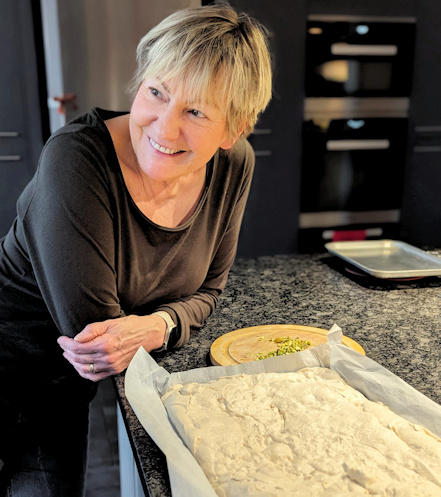Final proof for sourdough
The only thing worse than your bread loaf not shifting at all is overproving it. Gluten loses elasticity, the loaf spreads instead of rising and the effort of - sometimes as much as - 48 hours is wasted.
How will it be baked?
The length of the final proof depends how you intend to bake the loaf: if by sliding it onto a baking stone or a preheated heavy baking tray, you can get away with a longer final proof, 1 hour on average.
If you are using a Dutch oven (a cast iron or ceramic casserole dish), my rule of thumb is 40 minutes. Halfway through I start preheating the dish in the oven and by the time the dough is ready to bake, it will only have risen a little - but the oven spring will do its magic then.
Retarding sourdough in fridge
Alternatively, let it have a good night's sleep overnight in the fridge - which is called a retarded final proof. It will not usually rise much but should compensate for it with the oven spring.
But - not all sourdoughs like that treatment so it's a trial and error to a certain extent. San Francisco sourdough for example doesn't like the fridge and it turns out best made, risen and baked on the same day.
Tartine country bread on the other hand loves the fridge: you can make the dough on one day, shape it on the next and bake it on the third with great result. Likewise 36 hours baguettes - as the name speaks for itself.
Related recipes
About me
Hello! I'm Anna Gaze, the Cuisine Fiend.
Welcome to my recipe collection.

I have lots of recipes for you to choose from: healthy or indulgent, easy or more challenging, quick or involved - but always tasty.
Newsletter
Sign up to receive the weekly recipes updates